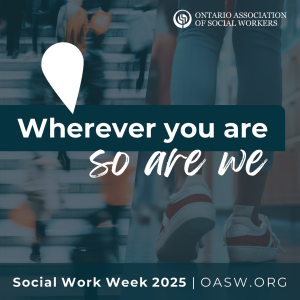The GIVE skills are interpersonal effectiveness skills. I used my GIVE skills at work, at home with my family and with my friends. I’ve always had a bad temper and so using my GIVE skills reminds me that if I want to have better relationships, I have to start being gentle, interested, validating and have an easy manner.
- G Gentle
- I Interested
- V Validate
- E Easy Manner
Lately, I’ve been interested in validation. It’s something that I’ve always done unintentionally – I think we all do to some extent – but now I’m trying to validate with intention. My husband and I joke about validation, I’ll make a snide comment about something he said and he’ll respond coyly, “I’m not feeling very validated right now.” We both started laughing. It really helps to diffuse the situation when we joke during arguments.
My husband and I do make fun of validation, however, I realize that it can be very powerful to validate someone else and receive validation in return. Here are some example dialogues I’ve had during the week centered on validation.
Show interest
Coworker: I went to the store yesterday and bought a new shirt. The price was affordable and it looks expensive, how could I resist?
Me (I smiled): Wow, sounds like a great deal. Where did you buy the shirt? What does it look like?
**I showed that I was interested by asking for more details about what the coworker is talking about and I used non-verbal communication, like smiling and nodding.
Use Accurate Reflection
Coworker: I have been feeling so anxious lately. I don’t know if it’s hormonal or not, but it’s really been impacting my life in a negative manner.
Me: You think that hormone changes have really disrupted your mood, is that right?
**I summarized what she told me and then I asked “is that right?” to make sure that I didn’t misunderstand anything. It was crucial for me to take on a non-judgmental stance.
Empathize
Husband: I want to spend time with you when you come home from work, but all you ever want to do is watch TV.
Me: I guess you must miss me now that I’ve been working full-time, is that right?
Husband: Yeah and you’re always saying that we should spend more time together, so it doesn’t make sense to me that you watch TV when I’m around.
Even though I’m exhausted after work, I had to empathize with my husband, since he enjoys spending quality time with me and he doesn’t get to see me as often now that I work full-time. It’s OK for me to prioritize my relationships over getting what I want, especially when my husband is involved. Never make assumptions about how someone feels, it’s OK to ask for clarifications.
Behaviour
Family member: I don’t want to go back to school.
Me: It makes sense to me that you don’t want to go back to school, since you had such a hard time studying when you were in high school.
**”Validate the person’s behavior in terms of causes like past events or present events” — from http://www.dbtselfhelp.com/html/validation.html
Communicate the valid
Family member: I’m worried that my daughter won’t get better, she’s been sick for so long.
Me: It seems very normal that you feel worried about her, you have a very close relationship with your daughter and she’s been struggling for so long.
**It’s important that I communicated to the family member that her behaviour made sense considering the circumstances.
Don’t be condescending
Student: What is the capital of Canada?
Me: It’s Ottawa! I was born and raised in Ottawa, it’s a beautiful place…
**Instead of scoffing at my student for not knowing the answer to a seemingly obvious question, I answered in a friendly and gentle manner. We all have limitations and strengths!





